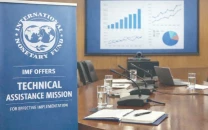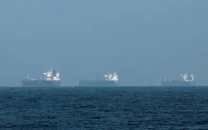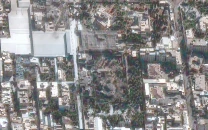The new KCR
Over Rs200 billion approved, with expectations that it will be operational in three years

The Karachi Circular Railway (KCR) project has finally gotten the green light from the government. Ecnec has approved the over Rs200 billion project with expectations that it will be operational in three years.
While many observers are suspicious over the timing — approving a costly and much-delayed project just days before PM Imran Khan faces a no-trust vote — working class people in Karachi won’t be particularly concerned if the project does go ahead on schedule. Interestingly, the approved cost of the 43km-long dual track mass transit system has actually been revised down from the Rs273 billion estimate made last month. Among the major non-rail works in the project are the construction of three underpasses to accommodate the track alignment. The project will also integrate with the Green Line bus service, which became fully operational earlier this year.
The original KCR was commissioned in 1964 to help Pakistan Railways employees commute from their homes in the east of the city to the city and cantonment railway stations. It was expanded over time and eventually evolved into a 44km loop connecting the port, Landhi, SITE, and commercial areas around the city centre, most notably Saddar. Rides were heavily subsidised, making the KCR extremely popular and busty. However, mismanagement and alleged collusion between Railways employees and private transporters led to a reduction in the number of trains plying the tracks and a dramatic decline in ridership. This also played a major part in the living, breathing traffic jam that is the Karachi of today. Meanwhile, as the operational portion of the KCR continued to shrink, encroached houses began popping up on Railways land. In fact, in some areas of Karachi, houses are literally built on top of old rail tracks.
Whether the new KCR can attract enough ridership to cover costs remains to be seen. However, like the original; public good, rather than profitability, should be the priority. Karachi is probably the biggest city in the world without a government-backed public transport system, and we have seen how this has made citizens suffer.














COMMENTS
Comments are moderated and generally will be posted if they are on-topic and not abusive.
For more information, please see our Comments FAQ